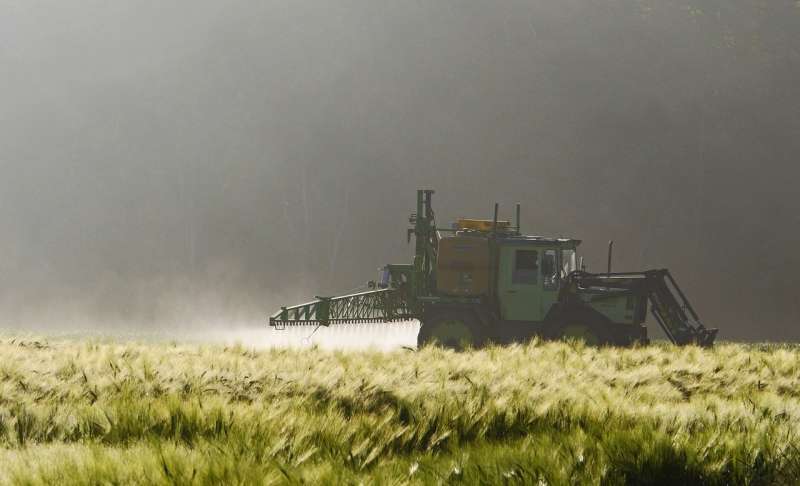New study links common herbicides and antibiotic resistance

A new study finds that bacteria develop antibiotic resistance up to 100,000 times faster when exposed to the world's most widely used herbicides, Roundup (glyphosate) and Kamba (dicamba) and antibiotics compared to without the herbicide.
A new study finds that bacteria develop antibiotic resistance up to 100,000 times faster when exposed to the world's most widely used herbicides, Roundup (glyphosate) and Kamba (dicamba) and antibiotics compared to without the herbicide.
This study adds to a growing body of evidence that herbicides used on a mass industrial scale, but not intended to be antibiotics, can have profound effects on bacteria, with potentially negative implications for medicine's ability to treat infectious diseases caused by bacteria, says University of Canterbury scientist Professor Jack Heinemann, one of the study's authors.
"The combination of chemicals to which bacteria are exposed in the modern environment should be addressed alongside antibiotic use if we are to preserve antibiotics in the long-term," he says.
An important finding of the new study was that even in cases where the herbicides increase the toxicity of antibiotics they also significantly increased the rate of antibiotic resistance, which the study's authors say could be contributing to the greater use of antibiotics in both agriculture and medicine.
Previously these researchers found that exposure to the herbicide products Roundup, Kamba and 2,4-D or the active ingredients alone most often increased resistance, but sometimes increased susceptibility of potential human pathogens such as Salmonella enterica and Escherichia coli depending on the antibiotic.
"We are inclined to think that when a drug or other chemical makes antibiotics more potent, that should be a good thing. But it also makes the antibiotic more effective at promoting resistance when the antibiotic is at lower concentrations, as we more often find in the environment" Professor Heinemann says.
"Such combinations can be like trying to put out the raging fire of antibiotic resistance with gasoline."
More information: Brigitta Kurenbach et al. Agrichemicals and antibiotics in combination increase antibiotic resistance evolution, PeerJ (2018). DOI: 10.7717/peerj.5801
Journal information: PeerJ
Provided by University of Canterbury





















